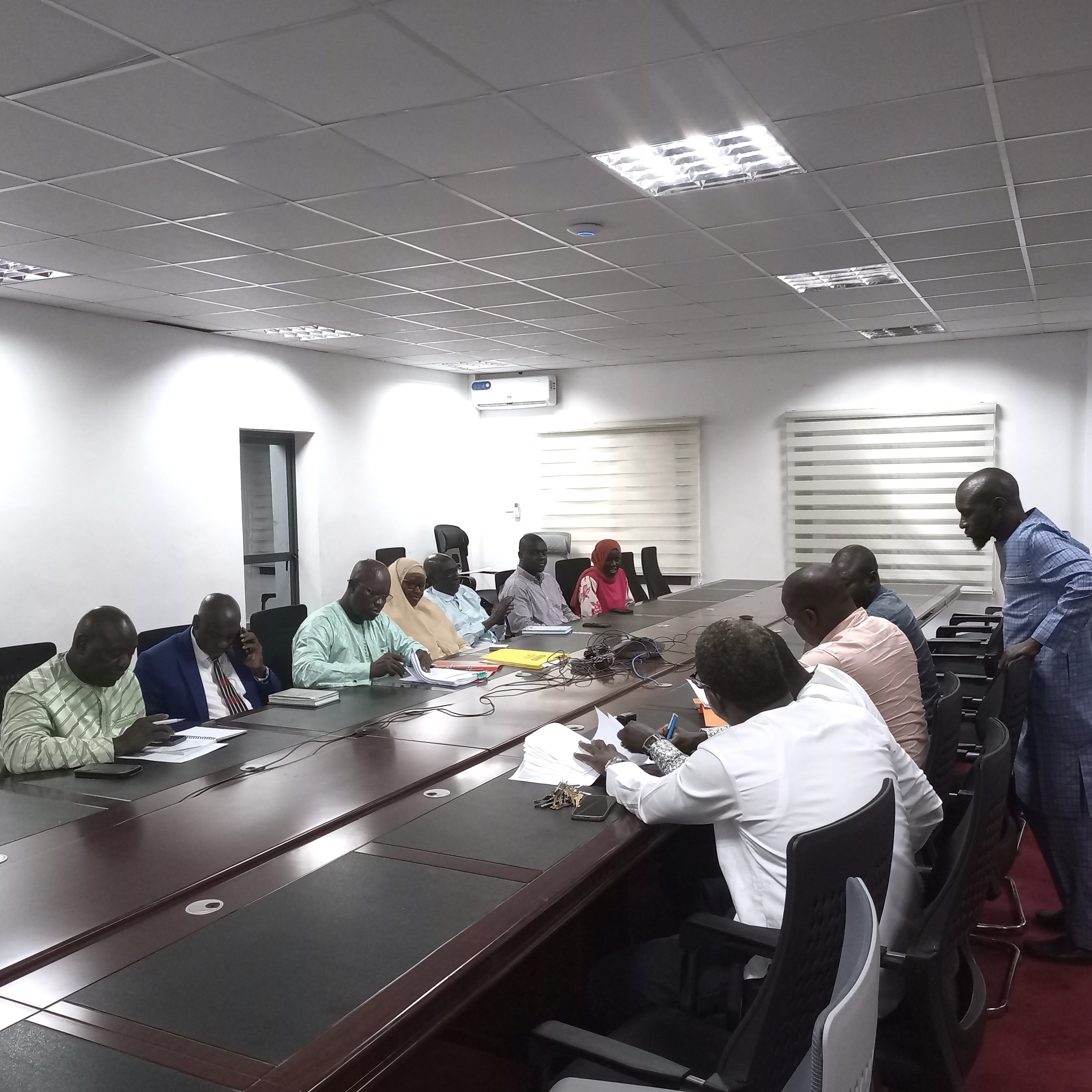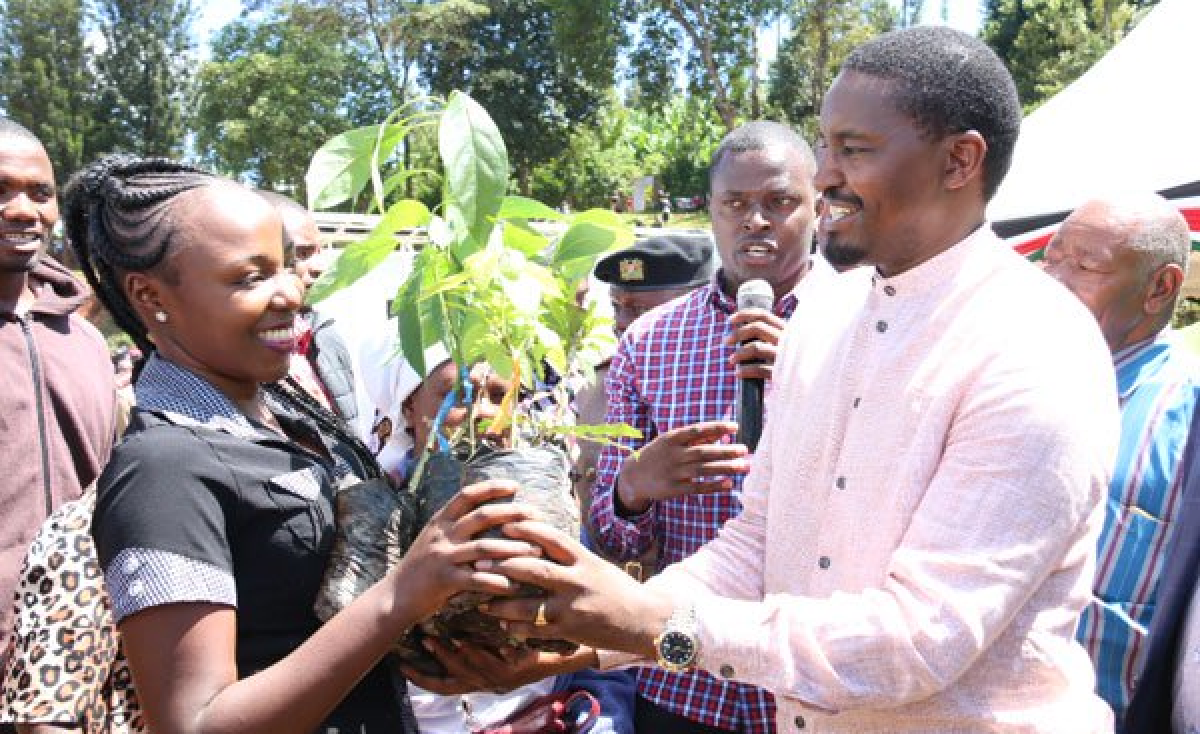 29 July, 2024
29 July, 2024
Contracts for US$3.7M GIRAV project funded Agro-Logistics Centres signed
Promoting the Development of critical marketing infrastructure
Gambia Inclusive and Resilient Agricultural Value Chain Development Project (GIRAV) on Monday July 29, 2024, signed two Contracts Agreements worth over USD 3.7million with two international firms for the construction of two model Agro-Logistics Centres (ALCs) in Macca Farafenni and Wassu.
The ALCs will be constructed on an area of between 1 to 1.5 hectares and will have the following amenities: A weighbridge, two 500 sqm sheds with a quay each (potentially cold cell room included in one of these of 250 sqm partially solar energy powered for a total capacity of 200 tons), mini-industrial zone (sorting, grading lines, first packaging of products or processing of those that cannot be sent to the markets to reduce losses), offices for rent (banking structure) accommodation area, restroom facilities, administrative building, car park, and handling and parking area for trucks. Each ALCs will provide the following services: Dry/cold storage, Cross Docking and Grouping, Rest area for transporters, Primary processing services (Sorting, Grading, Packing).
The expected outcomes of these investments are improved product quality, reduced marketing costs, reduced post-harvest losses due to climate impacts, and better links between producers and buyers.
The World Bank funded GIRAV project is financing the 18 months sub-projects designed to address the perennial problem of inadequate marketing infrastructure for commercial agriculture in The Gambia. The intervention forms part of ongoing efforts by the Gambian Government and the World Bank to transition the country from subsistence to market-oriented agriculture.
The contractors are Lumiere Prestations Group, awarded lot-1 for the construction of the USD1.8Million ALC in Wassu, Central River Region North and Probatim Sarl awarded Lot-2 for the construction of the USD1.9million ALC at Macca Farafenni.
Mr. Mod A Secka, Permanent Secretary, Ministry of Agriculture, Livestock and Food Security (MoALFS) presided over the brief ceremony held at the Conference Room of the Central Projects Coordinating Unit (CPCU) of the MoALFS in Banjul. Mr. Secka signed on behalf of the GIRAV project which is being executed by his Ministry whist Mssrs Bamar Sillah, Managing Director, Probatim Sarl and Momodou Jobe, Managing Director, Lumiere Prestations Group signed on behalf of their respective companies.
Permanent Secretary Secka congratulated the two companies for winning the awards for the assignment. He reminded them of the importance that the Government and the World Bank attaches to the ALCs. He told them that expectations are high and appealed to them to measure up to the expectations and deliver the projects within the agreed timeframe. He said: “We want quick delivery and quality work as well”. He assured them of the full support and collaboration of the government.
Speaking on behalf of their respective companies, Mssrs. Mssrs Bamar Sillah, Managing Director, Probatim Sarl and Momodou Jobe, Managing Director, Lumiere Prestations Group both expressed appreciation of the opportunity accorded them to contribute to the development of commercial agriculture in The Gambia. They appealed for the full support and collaboration of the relevant government institutions whilst reaffirming their commitment to the smooth and timely execution of the assignments.
Background: Inadequate marketing infrastructure
The lack of infrastructure for pooling, handling, storing, cooling, and shipping agricultural products creates significant marketing inefficiencies in The Gambia. It discourages the emergence of commercial operators that can act as aggregators and generate economies of scale.
Without proper storage and cooling facilities, significant waste occurs. For rice and other cereals, post-harvest losses are estimated at 10 percent, and they increase to 30–50 percent for fresh fruits and vegetables. Exports of fresh farm products are particularly limited by high transport costs. The time required to ship produce by sea makes it difficult for firms to guarantee supplies of fresh products of good quality to European Union (EU) markets. Air freight capacity is limited and depend on to what is available on passenger flights (about 25–30 tons per week).
Banjul port is too congested to operate efficiently. Some exporters resort to shipping their fresh products through the port of Dakar, despite the additional costs.
Furthermore, high cost of electricity impedes the development of functioning and cost-efficient cold chains, which further reduces the competitiveness of Gambian fresh exports. Inefficient market information systems have hampered the development of commercial agriculture, but now digital technology has opened opportunities to provide market information and productivity-enhancing services more widely and efficiently.
Some of the challenges identified in terms of marketing infrastructure and logistics in the different value chains studied by the GIRAV Project are as follows: Lumos and urban markets are spread throughout the country, but the facilities do not respond to food safety requirements and do not provide additional services to agri-food operators. Particularly, in the identified value chains of vegetables and fruit trees like mangoes, and the competitiveness of these value chains is mainly impacted by the lack of cold chain development.
The investment strategy for Agro-logistics Centres (ALCs) is premised around the development of access to market for local production, combined with the improvement of domestic distribution. The export towards the sub regional markets (Senegal, Mali and Guinea Bissau) and high-end international markets such as EU and UK; this can only be achieved through creation of primary processing of agri food products and the development of an efficient cold chain system. In a bid to address these challenges, government through funding from the World Bank through the GIRAV project is providing these two ALCs in the proximity of Lumos to provide important services in terms of aggregation, primary processing and storage which will benefit local production and reduce food losses. ALCs are also a great opportunity for the development of Gambian export, mainly of horticulture products in the subregion. The location of The Gambia represents a unique opportunity to catch trans-border logistics flows, using its strategic position for grouping and cross docking activities. The presence of warehouses and cold storage rooms in the proximity of borders in main “Lumos” will promote local and international trade.


